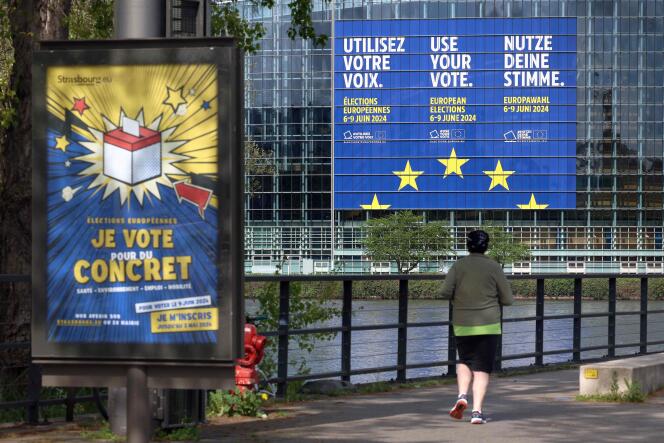


Twenty-seven elections and as many opportunities for targeted or widespread propaganda operations seeking to influence the outcome: From June 6 to 9, 360 million voters will be called to the polls to elect their MEPs. "2024 is a critical year to fight against FIMI [foreign information manipulation and interference]," said Josep Borrell, the European Union's head of diplomacy, in January, who believes that "elections [both national and European] will become the prime targets for malign foreign actors."
In recent weeks, several European governments and intelligence services have publicly denounced disinformation operations targeting them. In the Czech Republic and Poland, secret services announced that they had dismantled a corruption and pro-Russian propaganda network centered around the website Voice of Europe. In France, where the Foreign Ministry denounced several interference campaigns carried out by the Russian network known as "RRN," or "Doppelgänger," Foreign Minister Stéphane Séjourné evoked in early April the introduction of a "sanctions regime against those who support disinformation campaigns."
More than national elections, the European race suffers from structural weaknesses against destabilization actions. Turnout being historically low, influence campaigns can significantly affect the EU's least populous countries, even if they only reach a limited number of voters. What's more, with 27 countries impacted simultaneously, the resources available to social media platforms are strained, as several European Commission officials noted when presenting the new measures on moderation of major platforms resulting from the Digital Services Act (DSA) in March.
The vote will serve as a large-scale test for the DSA, which sets out binding measures and transparency obligations in terms of moderation for major platforms. While no one considers the text to be a magic wand that will solve every problem, it "will change a lot of things for platforms that have little or no moderation," noted Valentin Chatelet, a researcher at the Digital Forensic Research Lab, one of the leading non-governmental organizations in the study of attempted interference.
Almost every campaign uncovered in recent months had been designed to spread pro-Russian messages, even though establishing a direct link with Moscow hasn't always been possible. For example in Bulgaria, a "mushroom farm," a vast network of 400 websites and several dozen Facebook pages, is spreading Russian propaganda on a very large scale, but its aim could also be at least partly commercial.
You have 56% of this article left to read. The rest is for subscribers only.
